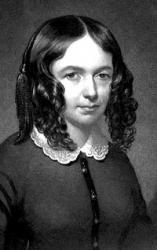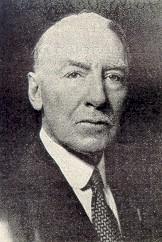Planning worship?
Check out our sister site, ZeteoSearch.org,
for 20+ additional resources related to your search.
- |
User Links
Search Results
Since without thee we do no good
Author: Elizabeth Barrett Browning (1806-1861) Appears in 7 hymnals Topics: The Christian Life Aspiration and Prayer Used With Tune: BEATITUDO
Since without thee we do no good
ABIDING GRACE
Appears in 22 hymnals Composer and/or Arranger: John S. Camp Incipit: 14321 17121 35645 Used With Text: Since without Thee we do no good
ABIDING GRACE
Since Without Thee We Do No Good
Author: Elizabeth B. Browning Hymnal: The Cyber Hymnal #6075 Meter: 8.6.8.6 Lyrics: 1. Since without Thee we do no good,
And with Thee do no ill,
Abide with us in weal and woe,
In action and in will.
2. In weal, that while our lips confess
The Lord who gives, we may
Remember with a humble thought
The Lord who takes away.
3. In woe, that while to drowning tears
Our hearts their joys resign,
We may remember who can turn
Such water into wine.
4. By hours of day, that when our feet
O’er hill and valley run,
We still may think the light of truth
More welcome than the sun.
5. By hours of night, that when the air
Its dew and shadow yields,
We still may hear the voice of God
In silence of the fields.
6. Abide with us, abide with us,
While flesh and soul agree;
And when our flesh is only dust,
Abide our souls with Thee. Languages: English Tune Title: ABIDING GRACE
Since Without Thee We Do No Good
Since Without Thee We Do No Good
Author: Elizabeth Barrett Browning, 1806-1861 Hymnal: AGO Founders Hymnal #14 (2009) Languages: English Tune Title: ABIDING GRACE
Since Without Thee We Do No Good
Since without Thee we do no good
Author: Elizabeth Barrett Browning Hymnal: A Treasury of Hymns #207 (1953) Languages: English Tune Title: BEATITUDO
Since without Thee we do no good
John Bacchus Dykes

1823 - 1876 Person Name: J. B. Dykes Composer of "BEATITUDO" in The Hymnal of Praise As a young child John Bacchus Dykes (b. Kingston-upon-Hull' England, 1823; d. Ticehurst, Sussex, England, 1876) took violin and piano lessons. At the age of ten he became the organist of St. John's in Hull, where his grandfather was vicar. After receiving a classics degree from St. Catherine College, Cambridge, England, he was ordained in the Church of England in 1847. In 1849 he became the precentor and choir director at Durham Cathedral, where he introduced reforms in the choir by insisting on consistent attendance, increasing rehearsals, and initiating music festivals. He served the parish of St. Oswald in Durham from 1862 until the year of his death. To the chagrin of his bishop, Dykes favored the high church practices associated with the Oxford Movement (choir robes, incense, and the like). A number of his three hundred hymn tunes are still respected as durable examples of Victorian hymnody. Most of his tunes were first published in Chope's Congregational Hymn and Tune Book (1857) and in early editions of the famous British hymnal, Hymns Ancient and Modern.
Bert Polman
John Bacchus Dykes
Elizabeth Barrett Browning

1809 - 1861 Person Name: Elizabeth Barrett Browning (1806-1861) Author of "Since without thee we do no good" in The Hymnal of Praise Browning, Elizabeth, née Barrett, daughter of Mr. Barrett, an English country gentleman, and wife of Robert Browning, the poet, was born in London 1809, and died at Florence in 1861. As a poetess she stands at the head of English female writers, and her secular works are well known. Sacred pieces from her works are in common use in America. They include:
1. God, named Love, whose fount Thou art. Love.
2. How high Thou art! Our songs can own. Divine Perfection.
3. Of all the thought of God, that are. Death.
4. What would we give to our beloved? Pt. ii. of No. 3.
5. When Jesus' friend had ceased to be. Friendship. Based on the death of Lazarus.
These hymns are in Beecher's Plymouth Collection 1855; Hedge and Huntington's Hymns for the Church of Christ, Boston, U.S., 1853, &c.
-- John Julian, Dictionary of Hymnology (1907)
=====================
Browning, Elizabeth, née Barrett, p. 187, i. We find that the usually accepted birth-place (London) of Mrs. Browning must be corrected. She was born at Coxhoe Hall, Durham, March 6, 1806, and baptised as Eliza¬beth Barrett Moulton Barrett at Kelloe Church, Durham, Feb. 10, 1808. [Rev. James Mearns. M.A.]
--John Julian, Dictionary of Hymnology, New Supplement (1907)
Elizabeth Barrett Browning
John Spencer Camp

1858 - 1946 Person Name: John Spenser Camp Composer of "ABIDING GRACE" in The Cyber Hymnal Born: January 3, 1858, Middletown, Connecticut.
Died: February 1, 1946. The funeral was held at Asylum Hill Congregational Church in Hartford, Connecticut.
Buried: Indian Hill Cemetery , Middletown, Connecticut.
Camp graduated from Wesleyan University in 1878 and received a Master of Arts in 1881. He went on to study law, but found that music was his true vocation. In 1882, he became organist at the Park Congregational Church in Hartford, Connecticut, and in 1906 organist at the Center Church in Hartford, Connecticut. He left the Center Church in 1921 to become director of the Austin Organ Company. He was awarded a Doctorate in Music by Trinity College in 1921, and a second doctorate from Wesleyan University in 1933.
Camp was a founder of the American Guild of Organists, 1896 and was President of the Connecticut Music Teachers’ Guild, 1898. For many years he conducted the Hartford Philharmonic Orchestra, which he organized. Among his benefactions is the John Spencer Camp Professorship of Music at Wesleyan University.
--www.hymntime.com/tch/
John Spencer Camp


 My Starred Hymns
My Starred Hymns

